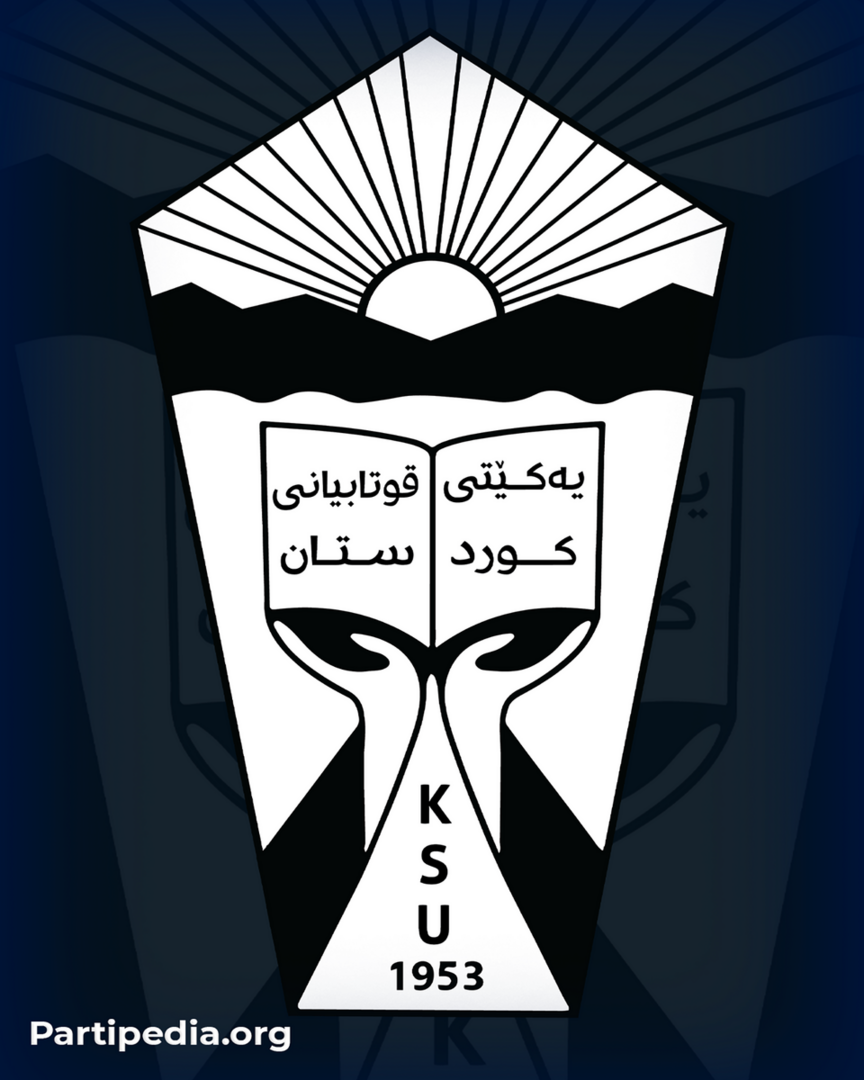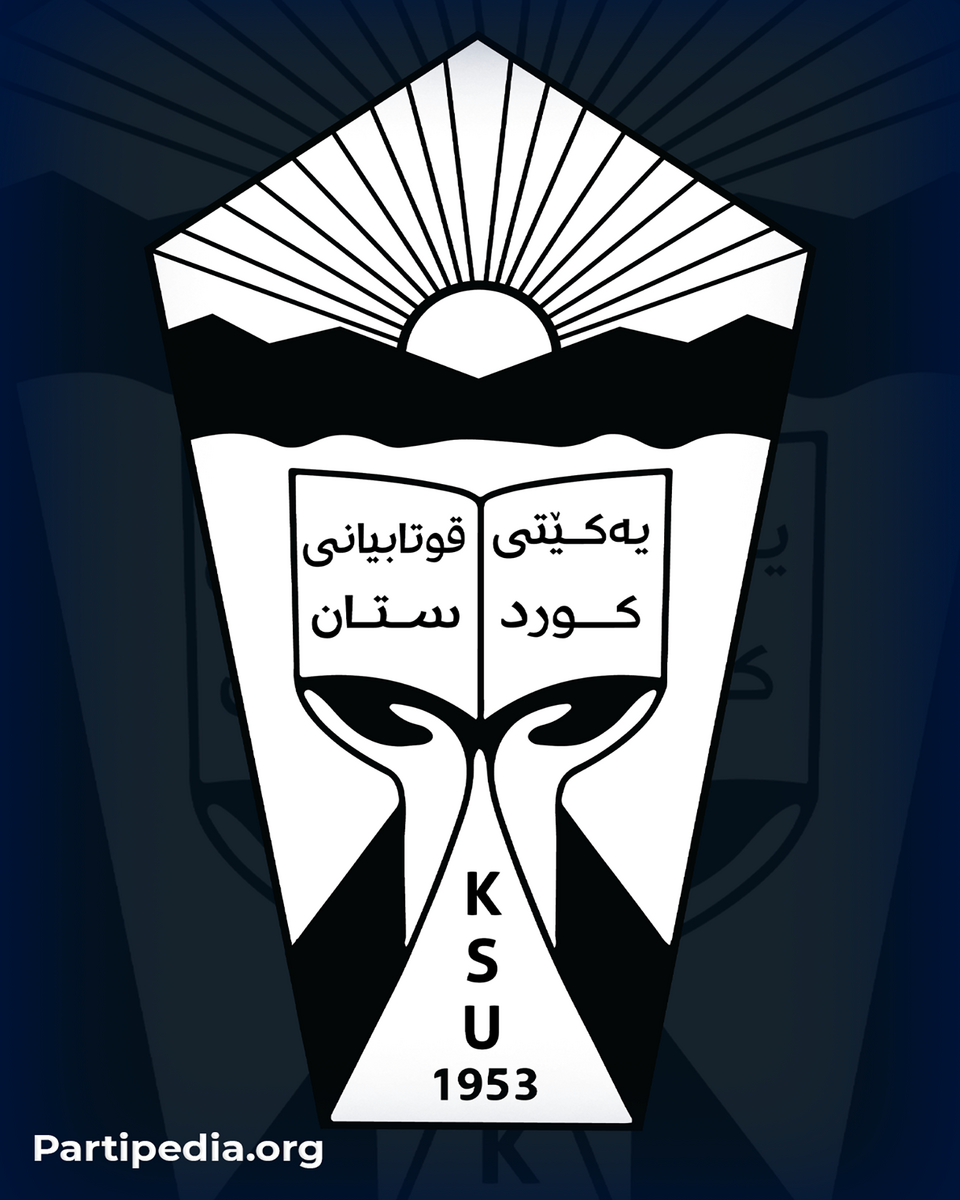Events between the Second and Third Congresses
The period between the second and third congresses of the Kurdistan Students Union, which lasted nearly six years, brought significant changes to the internal political situation of the Kurdistan Democratic Party and the Kurdistan Students Union in particular and Iraq in general. The most important of these changes were the victory of the July 14, 1958 revolution, the fall of the monarchy, The establishment of the republic in Iraq, the return of President Mustafa Barzani and his comrades from the Soviet Union, the official registration of the Kurdistan Democratic Party as a Kurdish political party in Iraq, and the beginning of the open activities of the Kurdistan Students Union.
The success of the revolution in Iraq ushered in a new phase of open political and organizational work, particularly in the Kurdish regions. During this period, the Kurdistan Students Union, as the sole student organization in Kurdistan, rapidly established committees and branches across most regions, significantly expanding its activities1.
A few days after the revolution’s victory, the leadership of the Students Union convened a major meeting at the shelter of the Erbil railway station. This meeting, attended by most of the leadership and representatives from Erbil, Kirkuk, Sulaimani, and Rawandz, addressed the new working methods for the post-revolutionary period and their relationship with the General Union of Iraqi Students2.
Following the revolution, the relationship between the Kurdistan Students Union and the Iraqi General Students Union soured. The Iraqi General Students Union, predominantly Communist and backed by President Abdul Karim Qassim, capitalized on its strengthened position. Despite prior agreements with the Kurdistan Students Union, the Iraqi General Students Union began establishing branch offices in Kurdish cities, including Erbil, where it opened a new branch.
In August 1958, Communist students formed the High Committee of the Iraqi Students Union, which received official state recognition in November 1958. This was the first official license granted to a student organization, and November 4, 1958, was designated as the day for student elections in Iraq. The evolving political landscape compelled the Kurdistan Students Union to engage in these elections, driven in part by factional support within the Kurdistan Democratic Party (KDP) for integrating Kurdish democratic organizations with Arab democratic ones under the Iraqi Communist Party’s banner3.
The Kurdistan Students Union (KSU) participated in the elections by forming a coalition called the United Democratic Front, which included both Kurdish and Arab students, and aligned itself with the General Union of Iraqi Students. This strategic move proved successful, as the list secured victory in most regions. The success of the United Democratic Front, particularly the strong showing of KSU representatives, underscored the significant role and influence of the Kurdistan Students Union in the Iraqi political landscape4.
After the elections, a general congress of students took place in Baghdad from February 16 to 20, 1959. The Kurdistan Students Union (KSU), representing the Kurdistan Democratic Party, participated in this congress. During the proceedings, it was decided to merge the KSU with the General Union of Iraqi Students to form a new organization named the General Students Union of the Iraqi Republic. Additionally, the congress established a special committee to address Kurdistan students' affairs and approved the creation of a dedicated newspaper for the union, titled “Khabati Qutabyan”5.
Despite the decisions made at the general students' congress, tensions between the Kurdistan Students Union (KSU) and the newly formed General Students Union of the Iraqi Republic quickly resurfaced due to differing political perspectives. Both organizations attempted to address these conflicts through another congress, but their efforts proved unsuccessful.
On December 2, 1960, the Kurdish Students Association in Europe participated in the third congress of the Iraqi Students Union, where several issues related to the Kurdish situation were discussed. Following this congress, the Kurdistan Students Union agreed to send a representative to the Secretariat of the General Students Union of the Iraqi Republic, and Kamal Mohiuddin was appointed to this role.
However, despite ongoing efforts to maintain relations, the relationship between the Kurdish leadership and the Iraqi government deteriorated. This breakdown in relations ultimately contributed to the eruption of the (Eylul) September 11, 1961 revolution, marking a significant turning point in the Kurdish struggle and the broader political landscape of Iraq.
In 1960, the relationship between the Kurdistan Students Union (KSU) and the Iraqi Students Union (ISU) was severely strained. The Iraqi government, in conjunction with the ISU, actively obstructed the KSU's participation in the Sixth World Students Congress held in Baghdad. This exclusion extended to the Kurdish Students Association in Europe, which was also prevented from sending a delegation to the congress.
Furthermore, the Iraqi authorities exacerbated the situation by repeatedly closing the headquarters of the KSU across various Iraqi cities. These actions underscored the increasing tensions and the challenges faced by the KSU in its efforts to operate and represent Kurdish students amidst the broader political turmoil of the time7.
Holding the Third Congress
After the complete disappointment of the Kurdistan Students Union in creating a general student organization that guarantees all the demanded rights of Kurdish students and treat all parties equally and the Iraqi Students Union withdrew from the promises it had made to the Kurdistan Students Union and Kurdish students, and the complete breakdown of political relations between the Kurdistan Democratic Party (KDP) and the Iraqi government. The Kurdistan Students Union (KSU) has decided to hold its third congress in order to reorganize its ranks and be open to supporting the demands of the Kurdish people in Iraq.
After the preparations, the congress was held in March 1961 in the neighborhood of al-Kasra in Baghdad, under the slogan "Let Newroz be an incentive for the unification of the students' struggle in Iraqi Kurdistan" and its work lasted three days8.
There are several different opinions about the date and place of the third congress of the Kurdistan Students Union, among these: holding the congress in 1957 in al-Azamiya neighborhood of Baghdad9. Also on March 18, 1961 in Sulaimaniyah10, or on March 19, 1961 in Sulaimaniyah11.
As for the date of the congress, there is no document available to indicate the year 1957, and the amended rules and program of the congress itself is written 1961 on it12. Opinions differ regarding the venue of the congress, with Baghdad being the most appropriate city according to the researches which has been conducted13.
The congress lasted three days and discussed the political, cultural and educational situation in Kurdistan. In the congress it was decided to amend the rules and programs and elected a new secretary and secretariat for the organization as follows:
1- Sarwar Kaka Hama Darwish, Secretary
2- Fuad Ahmad Baban
3- Haider Hamza Khadr
4- Hama Chawshin
5- Maamun Dabagh
In the same congress, a committee was formed to manage the affairs of students. Its members included:
1- Tayeb Jabar Barwari
2- Kamal Abdulkarim Zedan
3- Mohammed Penjweni
4- Mustafa Pishdari
5- Aziz Salih
6- Jamila Sabir Qadir, Reserve Member15.
After the outbreak of the September (Eylul) Revolution and the members of the Students Union joined the ranks of the revolution, Maamun Dabagh and Hama Chawshin, members of the secretariat, joined the revolution, Sarwar Kaka Hama, Secretary of the Students Union, was arrested in 1962 by the Iraqi government's General Security Agency to fill the vacancy of secretary Haider Hamza Khadr was appointed secretary and remained there as secretary until the fourth congress16.
Source:
1.kdp Encyclopedia Archive.





